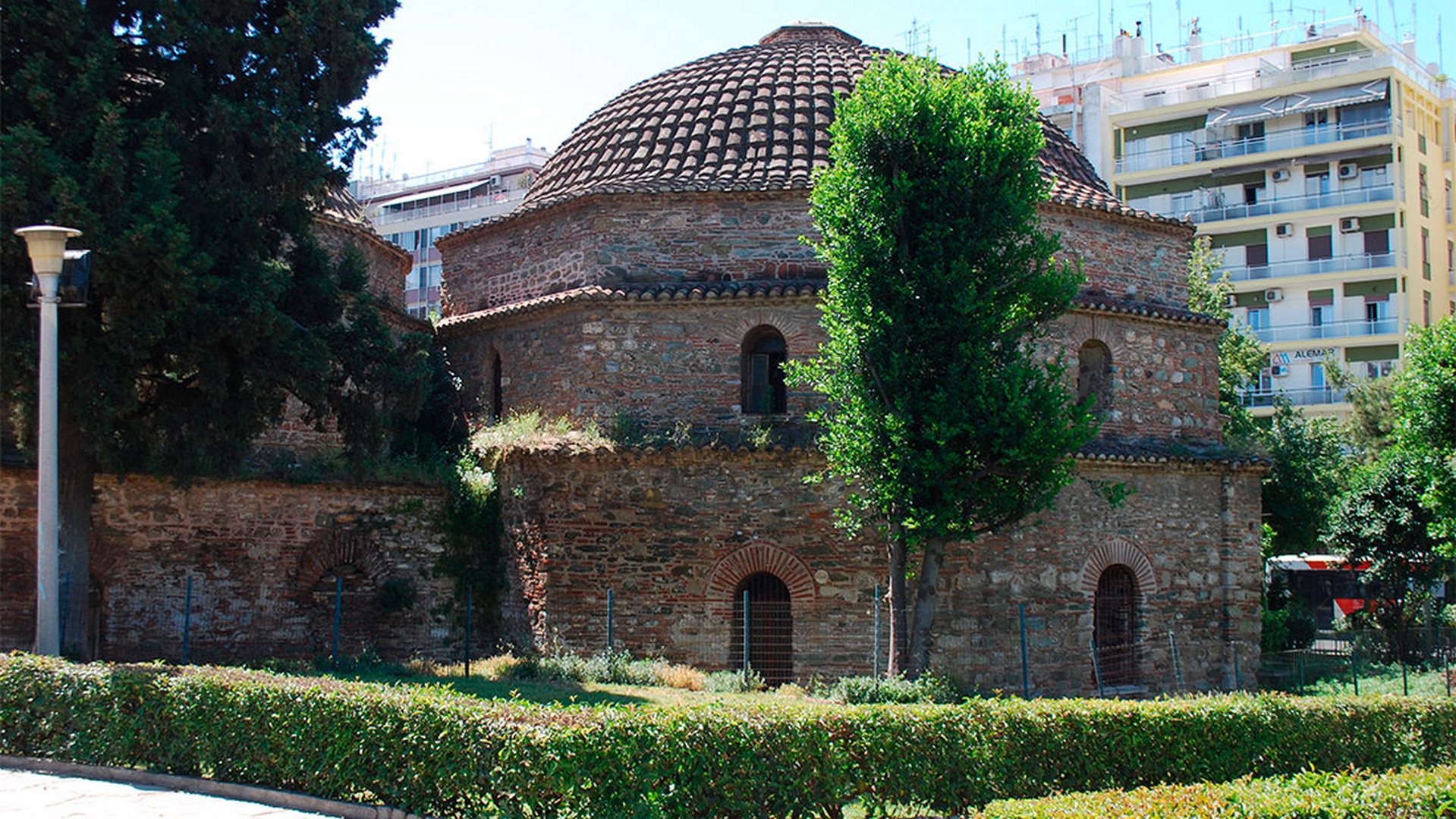Description
Property Name: Bey Hamam
Inventory No: 30-231-1
Date of infill of the inventory form: 2008-02-13
Country (State party): Greece
Province: Thessaloniki
Town:
Geographic coordinates: 40° 38′ 8.67″ N
22° 56′ 43″ E
Historic Period: Early Ottoman (1299-1453)
Year of Construction: 1444
Style: Early Ottoman
Original Use: Bath
Current Use: Cultural
Architect: Unknown
Significance
Bey Hamam, also known as the “Baths of Paradise”, is a Turkish bathhouse located along Egnatia Street in Thessaloniki. Built in 1444 by Sultan Murad II, it was the first Ottoman bath in Thessaloniki and the most important one still standing throughout Greece. For this reason, it is a part of those few important vestiges of Ottoman culture remaining in Thessaloniki and Greece in general. It is a double bath, with two separate parts for men and women. The male quarters are the most spacious and luxurious, but each one follows the same tripartite plan – a succession of three parts, the cold, tepid, and hot rooms. A large rectangular cistern flanks the baths to the east and guarantees their water supply.
Selection Criteria
vi. to be directly or tangibly associated with events or living traditions, with ideas, or with beliefs, with artistic and literary works of outstanding universal significance
State of Preservation
The bath remained in usage, under the name “Baths of Paradise”, up until 1968, where they were leased to the Greek archaeological service for four years. After the earthquake of 1978, which shook Thessaloniki especially hard, both sections of the bath were restored, and are used to this day for cultural events and short-lived exhibitions. Meanwhile, the eastern annex became the principal shop of the Foundation of Archaeological Receipts of the Hellenic Republic Ministry of Culture. In 2005, when the Thessaloniki was chosen as the European capital of culture, the building did the honors to cultural activities organized in the city. Recently, it is not open the visitation according to the field survey in 2015.
References
–


